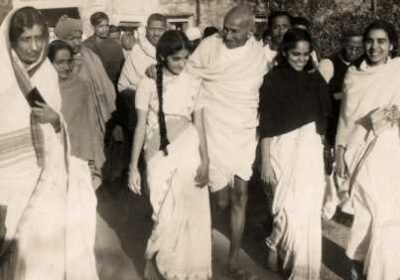Anand Patwardhan’s Toronto Selection ‘The World Is Family’ Combines the Personal and the Political

Anand Patwardhan, the doyen of Indian documentary filmmaking, will premiere his new film, “Vasudhaiva Kutumbakam” (“The World Is Family”) at the Toronto Film Festival.
The film focuses on Patwardhan’s parents and close family members and juxtaposes Mahatma Gandhi and the history of India’s independence movement with contemporary times.
“As my parents began to age, I began filming to preserve their memory for myself but had no intention to make a film as such. I filmed from the late 1990s till they passed away in 2008 and 2010, respectively. By this time I was also talking to my father’s younger brother and oral history about India’s freedom struggle had begun to emerge. In all, the filming process lasted around 20 years. Then during the COVID-19 lockdown, I began to edit my home movie material and realized that it could be valuable for others too,” Patwardhan told Variety.
Patwardhan takes no prisoners when it comes to documenting hot button topics in India and his frank and fearless approach has angered governments of all hues in the country’s political spectrum. Equally, he has been feted both at home and internationally, including at documentary events in IDFA, Sheffield, Sydney and Hong Kong.
“The World Is Family” is his most deeply personal film yet. “In the same period that I had begun shooting sporadically at home, I made three films that explicitly looked at politics and human rights in India. ‘War and Peace’ (2002) was an anti-nuclear film made after India and Pakistan did nuclear tests in 1998. ‘Jai Bhim Comrade’ (2012) looked at the inhuman treatment of Dalits [an oppressed Indian caste] and their poetry and music of resistance. ‘Reason’ (2018) was triggered by the murder of rationalists by right-wing Hindutva [Hindu nationalists]. During the making of all these films, what I filmed at home was less to make a statement and more to keep myself grounded in the love that I had always been surrounded by. Of course, the changing political landscape of India is a constant backdrop to the film.”
Through the film, Patwardhan finds lessons from India’s freedom movement that can be applied to the country today.
“The India that our freedom fighters had aspired to build was an inclusive India very different from the hate-filled version of ‘nationalism’ that is being peddled today. Let me put it this way. Secularism and humanism were so deeply embedded in our elders that it is a almost an act of violence to isolate these values from the rest of their being. So the film is not didactic but glimpsing the past is a way of re-imagining a future very different from the hate-filled reality of our present,” Patwardhan said.
Read More About:
Source: Read Full Article